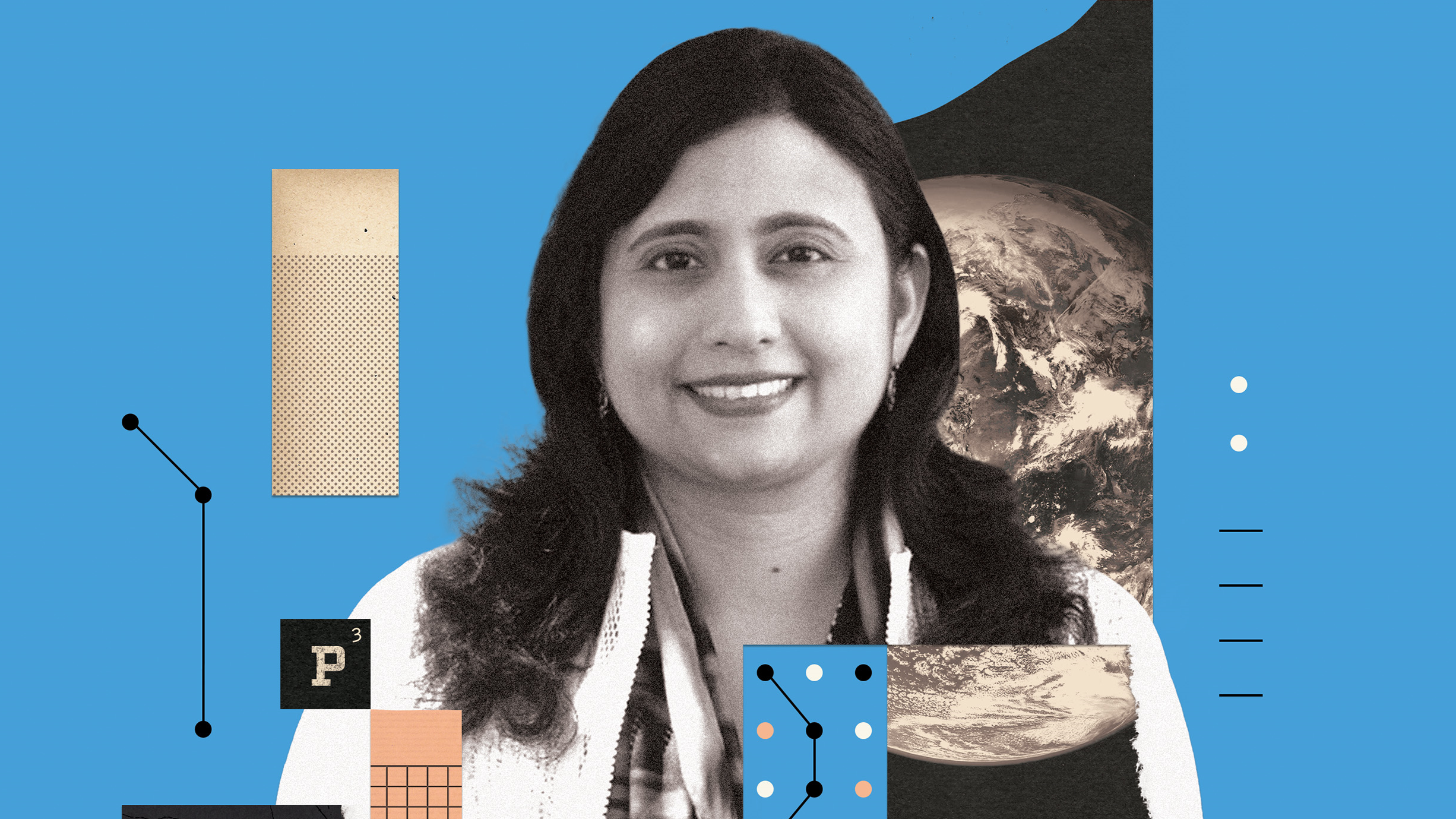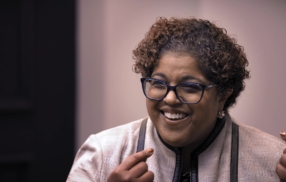
A New Model for Big Change: Public-Private Partnerships Are Changing How the World Tackles Societal Changes
By Sally Parker
More than 12 million people around the world, including 300,000 in Ethiopia, live with corneal blindness, an entirely avoidable condition if access to quality care is available. It’s a devastating disease that impacts both children and adults in low- to middle-income communities.
After coming together to address the problem, four partners — the Eye Bank of Ethiopia, Ethiopia Ministry of Health, global nonprofit eye bank SightLife and the Himalayan Cataract Project — completed thousands of corneal transplants. Their partnership, the Eye Bank of Ethiopia Elimination of Corneal Blindness Partnership (EBE), became a model for public-private development in the fast-growing sub-Saharan region of Africa. The aim is to ensure a steady supply of tissue and affordable eye care, and to integrate corneal health services into primary care.
Humanity’s most basic needs — for food, shelter, education, health — are not being met in many parts of the world. The reasons are many and complex. The wheels are falling off old development models, where the goals of different sectors are often at odds with one another.
EBE is a perfect example of a growing effort to collaborate across sectors to overcome financing and logistics barriers. How can more public-private partnerships, known as P3s, evolve so complicated projects for the public good can get off the ground?
“Multi-sector partnerships are increasingly used by companies and governments to distribute and manage risk. There are financial, political, and technical reasons they would choose to partner with each other and with civil society institutions to get social, environmental and other kinds of projects done,” said Joey Burton, executive director of Darden’s Institute for Business in Society (IBiS).
To shine a light on promising P3s, IBiS launched the P3 Impact Award program 10 years ago with social impact nonprofit Concordia and the U.S. Department of State’s Office of Global Partnerships. EBE won the award in 2020. The program’s aim: to better understand cross-sector partnership trends and develop best practices for solving environmental and social problems around the world.
Spurring Progress on Sustainable Development Goals
The P3 program has yielded critical data on the structure, design, function and successes of the P3 model in global development projects. Organizers recently released a report on key learnings from The P3 Impact Award’s first decade — which spanned the launch of the United Nations’ sustainable development goals and a crippling global pandemic.
In 2015, the U.N. set 17 goals to achieve in 15 years as part of its 2030 Agenda for Sustainable Development. Now at the midpoint, progress on the development goals has stalled and even lost ground in some areas due to the pandemic and geopolitical instability.
Professor Vidya Mani, faculty lead on the P3 award, is exploring ways the program’s data could help fill in gaps where development goals aren’t progressing as they should. Part of the holdup is that projects often measure outcomes and success differently: Two projects may share a development goal of decent work, for example, but they may not measure that outcome in the same way. Mani aims to create a set of best practices for collecting and analyzing outcome data at the ground level — using the experiences of P3 participants as a starting point.
“This whole conversation gets lost very quickly, because you’ll find a lot of people saying a lot of things,” Mani said. “How do I know how you’re doing it and what is it accomplishing? Unless we have ways to measure, it’s like talking in inches and kilograms without knowing what the conversion is. We have this opportunity now to look back at 10 years of work and say, ‘What has worked, and what has not worked?’”
To that end, Mani also plans to standardize impact metrics for P3 projects that are seeking next-stage funding.
“We would find a way to measure and train these people to start looking at outcomes that will enable them to go to that next stage,” she said.
A wealth of information lies in the successes current programs have had so far — lessons that can enrich future efforts, Mani said. “Were you able to scale? Did you have to leave the area? Did you do something else? How did this program help? We would get a set of best practices and a rulebook for how to make the P3s work going forward.”
The ultimate goal is holistic stability. “Not just you, your organization or your people; it’s the whole chain that needs to be sustainable,” said Mani, a former leader in USAID and a supply chain expert. “Otherwise, we’re just passing the problems around.”
On-Grounds Expertise
Darden faculty have diverse expertise reimagining the role of businesses in solving large societal problems.
The School’s faculty has formed a research group to focus on current public-private partnerships in the United States. They’re looking at how P3s might be adjusted so that local communities benefit from not only the projects themselves but the financial designs that underpin them. Students will use cases to define the characteristics that lead to the best outcomes.
“As a research center, IBiS is a conduit of information between the partnerships and the faculty. Data from the partnerships informs the faculty’s research, creating insights that are shared in the Darden classroom as well as the practicing world,” IBiS Director Maggie Morse said.
The P3 Impact Award has evolved into a prestige event to share ideas back to practitioners. Each year, five finalists for the award are picked from among dozens of P3 partnership applicants in the annual competition and an overall winner is announced at the Concordia Summit.
During the summit, finalists come together to explore ways their goals might interlock. Sharing their challenges and revealing proprietary data require a leap of faith—but summit participants know they are fighting intractable global challenges on many different fronts.
“The summit provides a stage for the partnerships to receive international recognition as well as an opportunity to learn and network with others who are all in this space,” said Morse.
The P3 program also provides resources for practitioners who are interested in learning to leverage the power of P3s, such as case studies on the finalists. The winning partnership receives a scholarship to attend a Darden Executive Education & Lifelong Learning program.
By sharing the learnings from the P3 program with students, alumni and practitioners, IBiS elevates the P3 model so more partnerships can reach impact scale, Morse added.
“Business leaders agree they can’t operate in a silo. This is where the importance of idea sharing comes in. Through our relationships with alumni, and with the organizations they lead, we are able to support the School and faculty and, in turn, the practicing world.”
The University of Virginia Darden School of Business prepares responsible global leaders through unparalleled transformational learning experiences. Darden’s graduate degree programs (MBA, MSBA and Ph.D.) and Executive Education & Lifelong Learning programs offered by the Darden School Foundation set the stage for a lifetime of career advancement and impact. Darden’s top-ranked faculty, renowned for teaching excellence, inspires and shapes modern business leadership worldwide through research, thought leadership and business publishing. Darden has Grounds in Charlottesville, Virginia, and the Washington, D.C., area and a global community that includes 18,000 alumni in 90 countries. Darden was established in 1955 at the University of Virginia, a top public university founded by Thomas Jefferson in 1819 in Charlottesville, Virginia.
Press Contact
Molly Mitchell
Senior Associate Director, Editorial and Media Relations
Darden School of Business
University of Virginia
MitchellM@darden.virginia.edu




